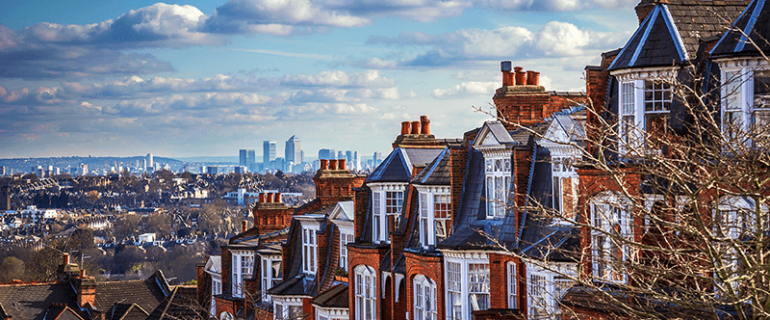Many or all of the products and brands we promote and feature including our ‘Partner Spotlights’ are from our partners who compensate us. However, this does not influence our editorial opinion found in articles, reviews and our ‘Best’ tables. Our opinion is our own. Read more on our methodology here.
If you’re lucky enough to be able to pay off your mortgage early or have found a better rate to switch to, nice work.
But before you hit the exit button on your current deal, consider if you’ll be liable for an early repayment charge that might cancel out any savings made by switching or overpaying your mortgage.
Of course, sometimes life happens and leaving a mortgage deal is unavoidable, perhaps because you need to move home or have separated from your partner.
Whatever the reason, knowing how early repayment charges work and how much it will cost you to leave your deal is key before making any big decisions.
Think carefully before securing other debts against your home. Your home may be repossessed if you do not keep up repayments on a loan or any other debt secured on it.
What is a mortgage early repayment charge?
An early repayment charge on a mortgage is a penalty fee that most borrowers face if they want to change or end their current mortgage deal early.
A mortgage deal, also called a mortgage product, isn’t the entire term of your mortgage. It’s the length of time you pay an initial rate of interest before you’re due to move on to your lender’s standard variable rate. The most common type of mortgage deal has a fixed rate of interest for between two and five years, although some may be up to 10 years or even longer. The tie-in period of your deal is the length of time an early repayment charge will apply.
If your mortgage deal has an early repayment charge attached to it, your lender will outline the potential cost and when it applies in your original mortgage agreement. It should also be shown in your annual mortgage statements.
When does an early repayment charge apply?
If your mortgage deal has a penalty for early repayment, it will usually kick in during the tie-in period if:
- You switch to a new mortgage deal with a different rate.
- You overpay (or pay off) your mortgage above the lender’s overpayment allowance.
- You sell your property and your mortgage can’t be ported to the next property.
Early repayment charges often apply to fixed-rate deals but they can apply to variable rate mortgages, such as capped and discount deals too.
Not all mortgage deals have an early repayment charge, though. Most standard variable rate deals don’t, which means you can move deals or change lenders whenever you like without paying a penalty. You will usually be charged a higher rate of interest for this type of deal, though.
» MORE: Why would you make mortgage overpayments?
Why are there early repayment charges?
Lenders build in mortgage early repayment charges to put off borrowers ending their agreement earlier than planned. The charge lets lenders recover costs and interest you would have otherwise paid them throughout the deal you’re cutting short.
The goal for the lender is to make profit from the interest you pay on your loan. This helps make sure they don’t end up out of pocket. This may not be much consolation for the borrower, but the interest rate you’re offered at the outset is based on you keeping the deal for a set period of time.
How much is an early repayment charge?
You will usually pay between 1% and 5% of your outstanding mortgage loan as a penalty for exiting early.
Depending on the lender, this may be tiered with a higher percentage earlier on in the deal, reducing as it gets closer to the end. This means that waiting until you move into the next tier would cost you less.
Here’s an example. Say you are in a five-year fixed-rate deal and you want to switch to a lower rate with another lender in year two. If you have £120,000 left to pay on your mortgage and a 3% charge, you would pay £3,600. In year four, if the charge reduces to 1% of the loan, you would pay £1,200. So the longer you sit tight, the lower the early repayment charge.
It’s worth knowing that if you’re just switching to a different rate with your current lender, it may waive any early repayment charge if you are nearing the end of your current deal.
» MORE: 6 ways to pay off your mortgage early
How to avoid early repayment charges
The best way to avoid an early repayment charge is to be clear on the terms of your agreement and to work within them. Here are some possible workarounds:
- Know how much you can overpay each year without a penalty, and don’t go over this limit. It’s usually no more than 10% of your mortgage balance each year.
- Consider choosing a deal with no early repayment charge, though make sure you consider the interest rate and any arrangement fees in your calculations.
- Respect the deadline, after which early repayment charges won’t apply. This is often tied in with the end of your deal period, though some tie-in periods can last longer.
- Port your mortgage when you move. Some mortgage lenders let you transfer your current deal to another property without paying an early repayment charge, though this isn’t guaranteed, and varies depending on what type of mortgage you have.
- Choose a shorter initial deal if you’re likely to move or are keen to shop around to get a better rate soon.
When is it worth paying an early repayment charge?
On the face of it, reducing your mortgage debt ahead of time or securing a lower interest rate sounds like a wise move. But you’ll want to make sure that a high early repayment penalty won’t cancel out savings you make in interest. Whether it’s a price worth paying will depend on your specific mortgage agreement and circumstances. If it’s an option, waiting until there is no fee, perhaps towards the end of your deal, might be worthwhile.
Early repayment charges can be substantial, so check with your lender if you’re in any doubt about how it works for your mortgage.
A mortgage adviser can also help you work out the best route for your circumstances.
» MORE: Check current mortgage rates
Dive even deeper

UK House Prices April 2024
House prices are changing all the time. So whether you’re moving home or buying for the first time, it’s a smart move to keep on top of the latest UK house price data, trends and housing market forecasts.

How to Remortgage to Consolidate Debt
Remortgaging to consolidate debt involves borrowing more on your mortgage to pay off other debts. This can make it easier to manage debt and could help lower your combined monthly debt repayments. However, more debt is secured against your home and you could end up paying more interest overall.

How to Remortgage to Pay for Home Improvements
Remortgaging to pay for home improvements or an extension may be an option if you have sufficient equity in your property and can prove to your lender a larger mortgage is affordable. Your income, outgoings and job status are some of the factors typically looked at when deciding whether you can afford a mortgage.



